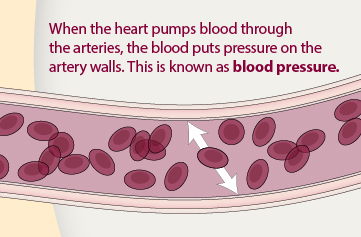
High blood pressure raises your odds of having both heart stroke and heart attack. It is imperative to know your numbers, since, supposing that you have hypertension you'll need to cut those numbers down. Consult with your doctor about the most ideal ways for you to bring down your pulse.
Here are a few things they may recommend in How to lower blood pressure.
1.[/b] [/b]Lose Weight[/b][/b]
In case you are overweight, losing just 10 pounds can bring down your circulatory strain.
It will likewise assist with rest apnea - when your breathing momentarily stops on various occasions while you rest. It can raise your pulse and make your heart beat sporadically.
Shed pounds gradually with a consistent blend of smart dieting and exercise.
Watching the scale will help your pulse deal with itself.
Check your readings consistently at home, and attempt to remain in your objective reach.
2.[/b] [/b]Eat Healthy[/b][/b]
A program called DASH (Dietary Approaches to Stop Hypertension) is considered by numerous individuals to be the best eating regimen with regards to overseeing and bringing down pulse.
It is essential standards are to avoid or scale back:
1. Food sources high altogether and soaked fat
2. Prepared nourishments
3. Sugar
4. Salt
5. Sugars
6. Caffeine
7. Liquor (close to one beverage daily in case you're a lady; two or less in case you're a man)
The eating regimen likewise proposes you load up rather on:
· Leafy foods, particularly berries, which are high in cancer prevention agents
· Whole grains
· High-protein food sources, as unsalted nuts
· Food sources high in potassium and magnesium, as verdant greens or beans
· Calcium-rich food sources, similar to low-sugar yogurt
3.[/b] [/b]Get Regular Exercise[/b][/b]
Exercise is the perfect companion to eating right.[/b][/b]
You are bound to get in shape in the event that you practice and follow a solid eating routine.
Official proposals call for in any event thirty minutes of activity most days of the week.
The impacts can be sensational: circulatory strain drops of four to nine focuses.
Recall that activity is not simply going to the gymnasium. It very well may be cultivating, washing your vehicle, or housework.
In any case, things that get your pulse up - oxygen consuming exercises - like strolling, moving, running, riding your bicycle, and swimming are best for your heart.
4. Lessen Your Sodium Intake
It's an excellent guilty party in raising circulatory strain.[/b][/b]
The American Heart Association indicates that people with high blood pressure keep it below 1,500 milligrams in line with day. Check your meals marks to understand the quantity you are getting. On the off hazard which you reduce lower back steadily, you are extra averse to look at the distinction.
One method to cut back is to make your meals at home. Seventy five percentage of your sodium admission comes from ingesting out and bundled nourishments. Utilize extra flavors for taste as opposed to salt. Eating extra potassium (discovered in meals sources like bananas, raisins, fish, and milk) enable sodium from your body. A little exertion can bring pulse down as much as two to eight focuses.
